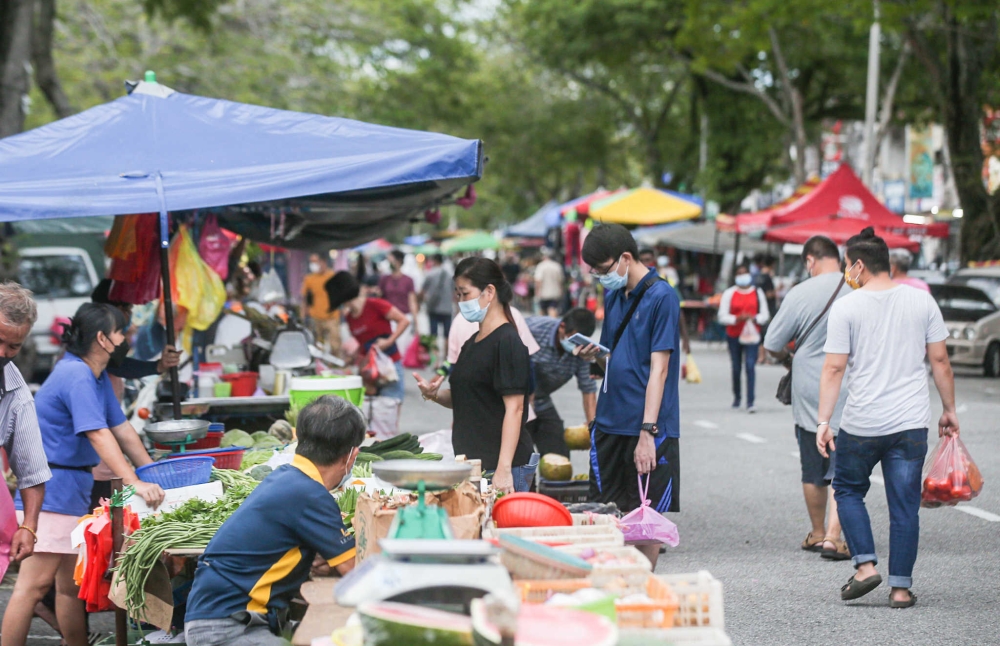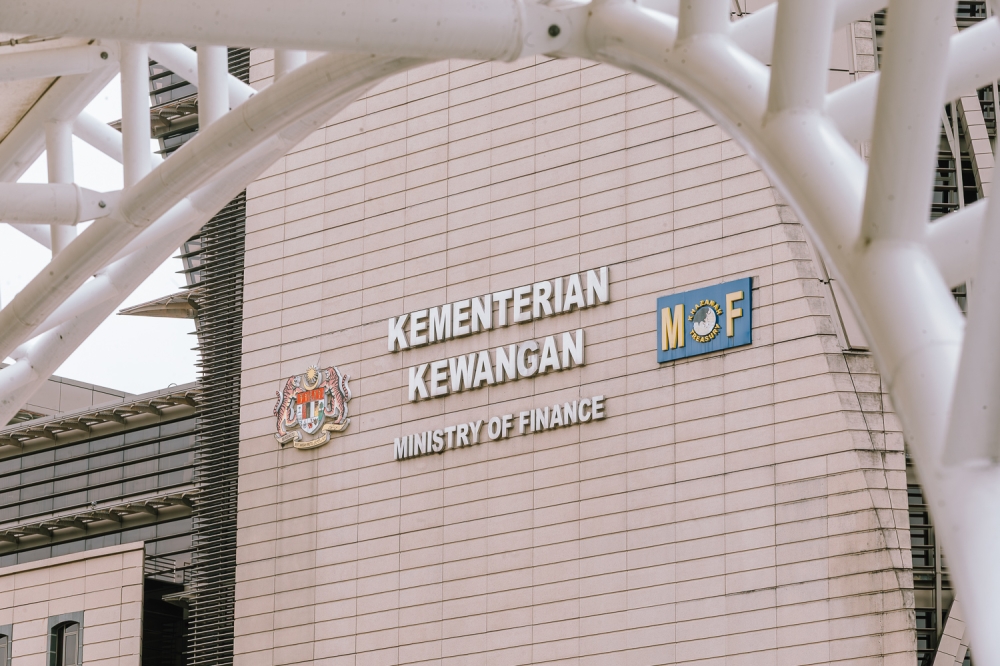NOVEMBER 2 — It overloads the senses, the post-apocalyptic scenes of pasar malam (night market) venues when they end.
Local council contractors are confronted by either a lot of trash or a mountain of it, it’s degrees of disgust they deal with. The disgust is not optional.
And then the smell. One feels icky just standing inside a pasar malam at the end of the night.
It should shock and shame residents but they have gone indoors already, only cleaning crew and rats stay back. Out of sight, out of mind. Until infestations or floods multiplied by clogged drains manifest.
But this is not news to Malaysians.
It is, however, the most excellent place to begin the series on “Getting to be a developed country” as promised last week.
To talk about activities and elements which involve the interplay of government, businesses and citizens. This grassroots activity is accessible to broad discourse and unhindered by technicalities.
The discourse’s use? Government can absorb and the rakyat can observe there are decision making mechanics which wait for their involvement. To know it’s worse due to their indifference, to know it can be better if they participate.

People’s councils
The Pasar Malam phenomenon blossomed in the 1980s. I remember walking down Taman Maluri’s Sunday edition with new wave music from cassette vendors filling the air as egg vendors shout out low prices.
So, how do local councils go about setting up a pasar malam?
A spot is picked. A longish stretch of road made free of motor vehicles for half a day is inundated with stalls from late afternoon to around 10 at night.
It has a little of everything, food, drinks and fresh groceries. Targets office workers who cannot frequent morning wet markets or those able to pay premium for the convenience of sellers showing up to them.
There is a demand, and a supply meets it.
All well and good except it skips the critical part, to make sure one good does not come at the expense of other individuals, groups or businesses’ wellbeing.
A road — mostly central — shut for half a day overburdens adjacent roads. Parking compounds the vehicular traffic, at times to a standstill.
Fifty-two days a year, residents and businesses have to abdicate their space for makeshift stalls.
Residents enjoy the Taiwanese fried mushrooms but rue not being able to park in their own porches. Businesses like bookstores may get more foot traffic but restaurants lose out to the 25 other cheaper competitors with fried noodles or fruit rojak.
Other concerns emerge.
Are families happy with young people overloading on junk food on pasar malam evenings? How about environmental care, to reduce disposable plastic and food waste? Do they place enough large bins to take in the waste and perhaps even more bold, to separate the waste at these markets?
Are residents and businesses helpless, for it is purely the council’s prerogative?
Rakyat, then the elected, then the appointed, then the employed
Local councils control all pasar malam in their area. They cooperate with other agencies like police, RELA, the district health department and other players but ultimately it’s their show.
Yet, in economic terms, residents own councils since they pay for them with assessment fees. Pay for it, own it.
In political terms, councils are managed by councillors. In Selangor, 25 for each of the 12 councils. They are appointed by the state government. Nevertheless, state governments are elected by voters — the residents of the councils — therefore residents own the councils even if indirectly.
It is necessary to remind at this juncture, democratic power emanates from people. It’s manifested through votes at elections. All levels of power.
The vagary of the system results in an imbalance, the civil servants run the show with impunity.
Regular folks are astounded when told the council is theirs, not belonging to the civil servants. They are merely employees, not overlords.
The place to affect
Full board meetings determine laws, rules and policies, held probably 10 times in a year. Still, the real debate and decisions are in the sub-committee meetings, one of which oversees pasar malam.
For instance, where to have one, how many lots, which business to select and what specific requirements for vendors and contractors.
If oversight exists, why do most dither without capacity to innovate or regulate sufficiently issues like nutritional balance, waste management and environmental care?
Since the rakyat only indirectly controls the councils and the state government which directly controls them is distracted by state affairs and under the false illusion their appointed councillors fulfil the proxy role, a gap opens for civil servant prerogative to act, or more so the case to act less.
It’s natural since it’s highly possible the staff do not reside in the pasar malam zone. So, why care?
And those who care most are the residents, since they live the reality brought by the pasar malam.
But they likely hesitate to speak up.
Since they are uninvolved in the council’s day-to-day operations, they pick and choose when to engage. Waste collection, clogged drains, flood mitigation and dengue outbreaks, are far ahead of pasar malam as core issues. Councils expect the people to stomach it, and the people not wanting to detract from major issues let secondary issues slide.
They are forced to triage.
They negotiate and pray for voluntary assistance, rather than demand and force employees to do their job.
So, they’ll ask the spirit in the sky for trash collections and enlarged monsoon drains and put up with the rest.
Equally frustrated are businesses — affected but excluded from consultations about council management.
First class pasar malam for first world Malaysia
Is the dream.
Not to end pasar malam but to enhance them. And it can only be done with community involvement.
So, they reflect the respective community’s values, needs and priorities.
If it prefers to enforce a no plastic policy, and it thereafter is saddled with higher prices, the nasi lemak is 20 sen more because it is packed in banana leaf and paper, then so be it.
If it reduces vendors by 20 per cent to increase pedestrian space and large multi-tiered bins to discourage loose rubbish and increase recycling, that’s what it gets.
If it relocates the night market away from main traffic arteries, but reduces congestion and opens up ample parking space, well and good.
If it sets quotas for the ratio of junk food versus healthier alternatives, or scale rental to the products sold or served, it serves a minor role to reduce widespread obesity.
If it requires the council staff to be onsite to keep an eye on vendors, patrons and contractors, then it is a brilliant KPI to introduce.
The residents are incentivised to have better a pasar malam.
Presently, the estrangement residents feel in relations to their councils is captured in this pasar malam sordidness.
Even if small measures are tried. Like all resident associations, kampung committees and businesses in and around every pasar malam can submit reports every year about feelings on the ground about the night markets, already the council knows better what to do. Actions may include, in the extreme, to shut down the pasar malam.
Rather than wait for complaints, have interactive cyclical processes to involve the community.
It is self-evident to most civilised societies that involving residents improves the administration of municipalities. Malaysia is one exception which more than readily explains the overall poor state of our pasar malam, a microcosm of our adolescent and not developed society.
* This is the personal opinion of the columnist.





















